Most ecommerce businesses sell on multiple channels, including ecommerce platforms. You might have a website or a Shopify store, list products on Amazon Marketplace, sell on Facebook, and also sell in brick-and-mortar locations.
If you take a multichannel approach to sales, your customers have a different brand experience depending on the sales channel. An omnichannel fulfillment model seeks to unify the look and feel across all your online sales channels.
You have the same choice for your order processing: multichannel or omnichannel fulfillment. Increasingly, ecommerce sellers are adopting an omnichannel order fulfillment strategy. Here’s what you need to know about both fulfillment strategies to make the right choice for your business.
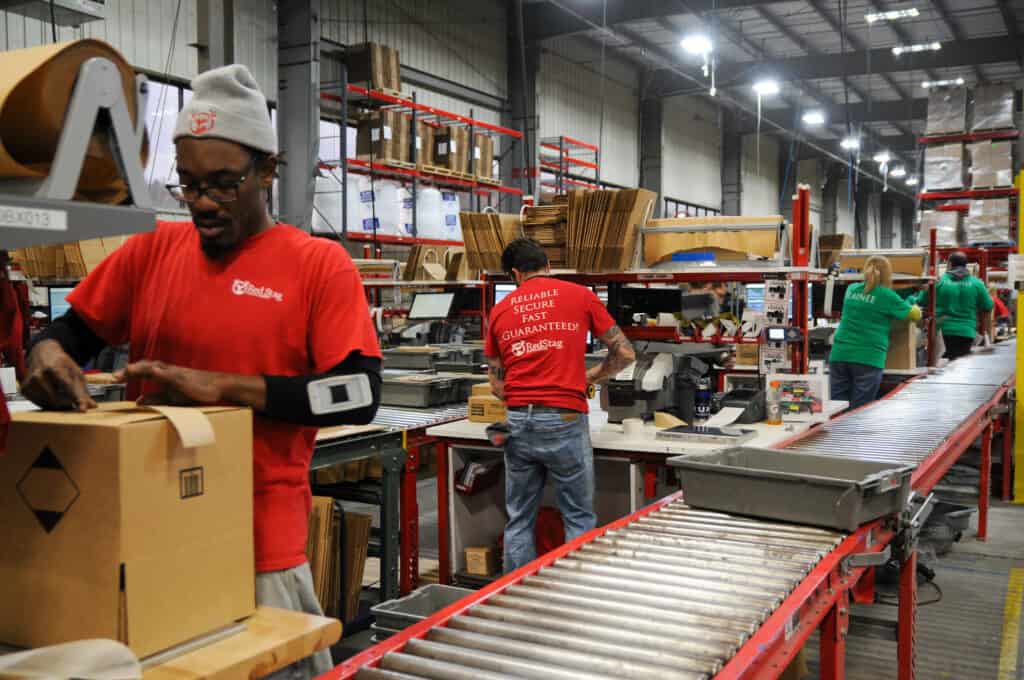
What is multichannel fulfillment?
Multichannel fulfillment is siloed by sales channel, with a separate inventory for each. For example, you might use Amazon FBA to efficiently fulfill orders and a 3PL or in-house fulfillment for customer orders placed on your website. Additionally, brick-and-mortar retailers can benefit from a distribution center to supply locations with products.
What is omnichannel fulfillment?
Omnichannel fulfillment is a unified approach to inventory management and order processing. You maintain one inventory for all sales channels and use the same order fulfillment process, no matter where the customer places an order.
In addition, omnichannel fulfillment integrates your store locations through in-store pickup and returns for online orders.
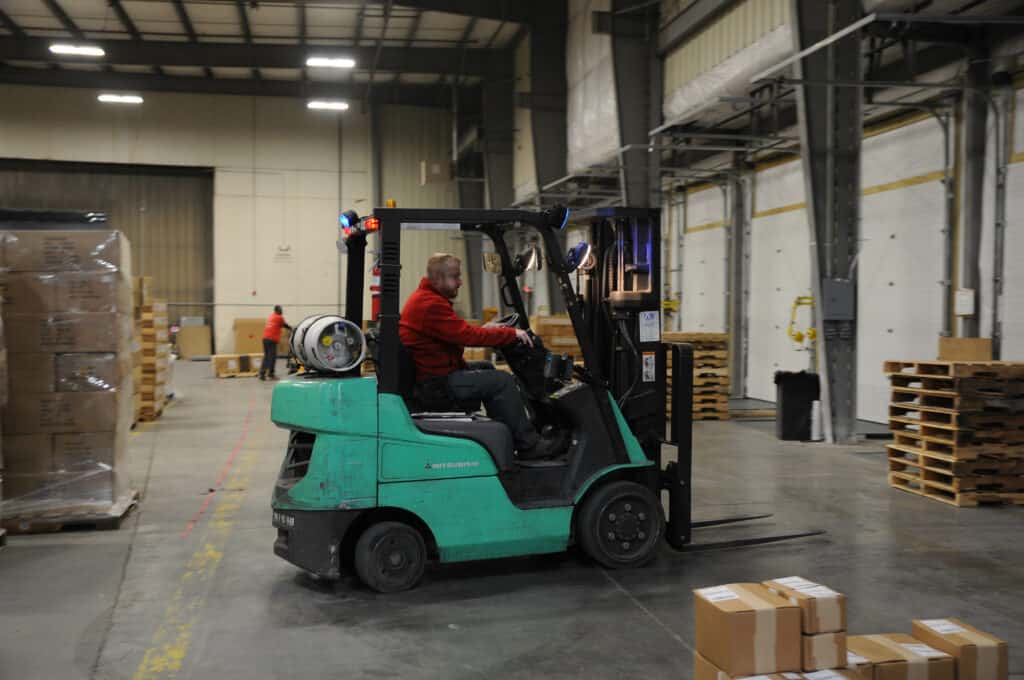
Pros and cons of omnichannel fulfillment vs. multichannel fulfillment strategies
Here are some of the factors to consider when you’re deciding whether to take an omnichannel or multichannel approach to your order fulfillment.
Multichannel fulfillment pros and cons
Multichannel fulfillment may benefit your business if:
- You want to present a different brand experience to diverse audiences.
- Keeping separate inventory for each sales channel works well for your business.
- You want to create individual demand forecasts for each sales channel.
However, before you adopt a multi-channel fulfillment strategy, you should consider the drawbacks:
- More of your capital will be tied up in inventory.
- Holding separate caches of stock makes inventory planning more difficult.
- It’s less convenient for your customers because they don’t have the option for in-store pickup or returns of online orders.
Perhaps the biggest drawback to a multichannel fulfillment approach is that consumers are likely to be multichannel shoppers. While you might want different marketing approaches for other sales channels, this might confuse shoppers who research your products on different platforms. For a unified brand approach, omnichannel fulfillment is a better option.
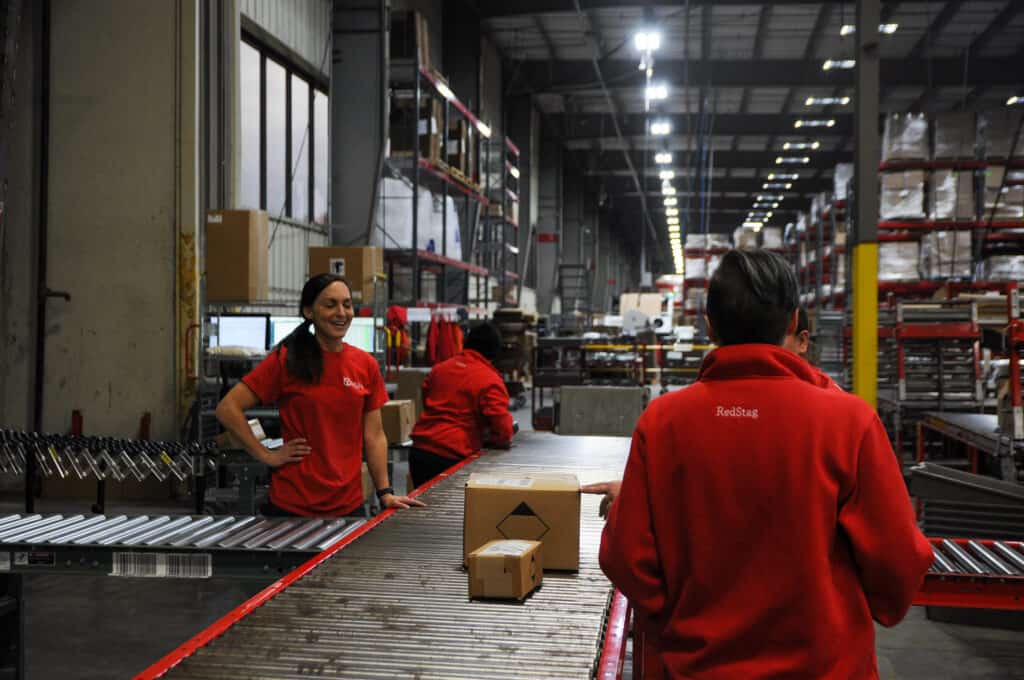
Omnichannel fulfillment pros and cons
The benefits of omnichannel fulfillment strategies include the following:
- You manage one store inventory instead of several, reducing your costs and improving your inventory forecasting.
- Omnichannel fulfillment meets customer needs by giving them flexible options for orders and returns, increasing customer satisfaction, and improving the customer experience.
- It allows you to develop strong brand recognition and a cohesive image for your company across multiple channels.
You might run into problems with omnichannel fulfillment strategies if:
- You sell on Amazon and want to use Fulfillment by Amazon for your Amazon orders but not those on your other platforms.
- The added order processing duties create issues in your brick-and-mortar retail environment.
Using Amazon FBA is the easiest way to offer Prime shipping to Amazon customers, so FBA is a good option for some businesses. Amazon will fulfill orders from competing sales channels as well, so you have the option to execute an omnichannel strategy using FBA.
However, if your goal is to increase brand awareness and improve customer communication, you’re better off partnering with a 3PL that can help you promote your business through your fulfillment operations.

Adding brick-and-mortar store locations into your omnichannel fulfillment process
If your business includes physical stores, your brick-and-mortar locations are an essential element in your omnichannel fulfillment strategy. Allowing customers to order online and pick up or return in an omnichannel retail store has several upsides that can enhance order fulfillment processes:
- You effectively add all the items in your warehouse to the list of products available in your retail locations without the need to stock every item in every store.
- Customers love free shipping. You can easily offer free shipping for online shoppers since you can add retail orders to regular inventory shipments, helping to improve customer satisfaction and the customer experience.
- In-store pickup gets customers into your stores, where they may find additional items they want to buy.
- If you sell apparel, picking up an order at a physical store gives the customer a chance to try on the item to see if it fits. If not, your retail personnel can handle the return or exchange of the product on the spot.
Your brick-and-mortar stores can also serve a fulfillment function in your omnichannel strategy. Offering home delivery for in-store purchases is a convenience your customers will appreciate.
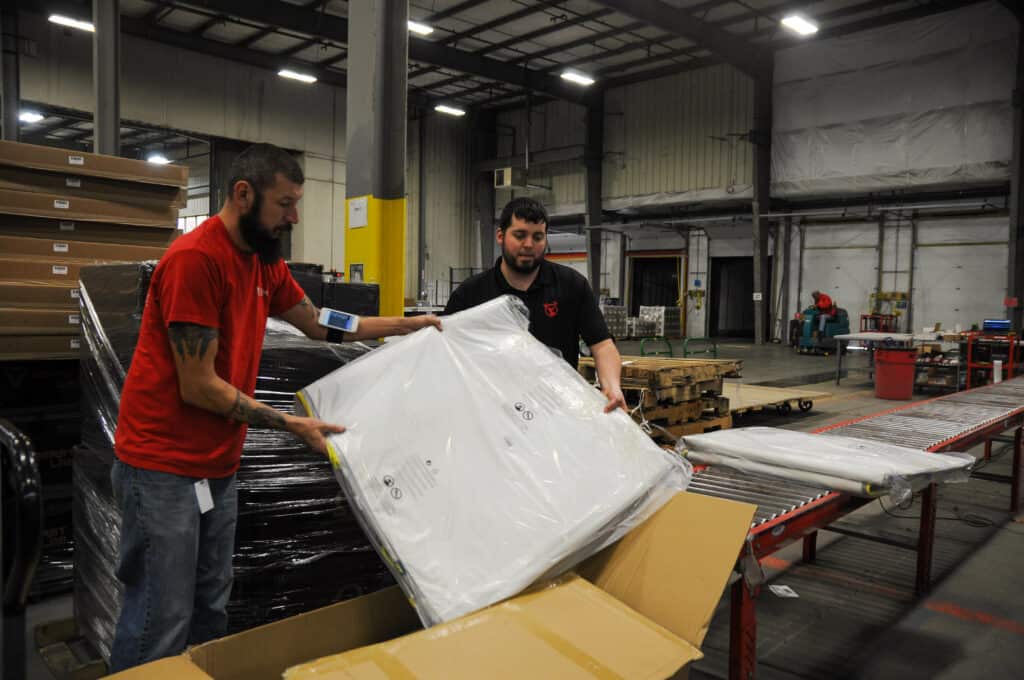
3 tips for omnichannel success
Omnichannel fulfillment requires planning, coordination, and a high-quality warehouse management system. Here are three things you can do for successful omnichannel fulfillment optimization across sales channels.
Pick a 3PL that can handle all your fulfillment needs
A fundamental element of your omnichannel fulfillment strategy is who will execute it. The demands of an omnichannel retail strategy can strain in-house fulfillment operations.
Partnering with one of the best fulfillment services companies is a great way to take your order fulfillment operations to a new level while meeting consumer expectations, like quick delivery.
Here are some of the qualities to look for in an omnichannel fulfillment warehouse:
- Choose a fulfillment company whose warehouses have national fulfillment capability. That means warehouse locations that can reach every corner of the U.S. in two days or less.
- When you outsource omnichannel fulfillment, look for a 3PL that deals with products like yours. If you sell clothing, choose a company that ships for other clothing brands. If you sell bikes, go with an omnichannel order fulfillment center experienced at shipping bikes. That inventory management expertise will ensure that all customer orders are packaged well to arrive in perfect condition.
- If your omnichannel retail strategy includes brick-and-mortar stores, find a fulfillment partner that can ship bulk inventory to your stores as well as individual orders to consumers.
- To build your brand, choose a company that offers high-quality inventory management and omnichannel order fulfillment services and fulfillment guarantees.
Incorporate omnichannel fulfillment methods into your supply chain
Omnichannel fulfillment centers are a terrific way to improve your supply chain operations if you incorporate the omnichannel philosophy. Consider ways that supply chain management, from manufacturing and inventory visibility to order delivery, can enhance your brand and improve customer satisfaction and the customer experience.
Focus on inventory management
Increased inventory visibility is one of the most significant benefits of a unified order fulfillment strategy, so use this to your advantage. When you outsource omnichannel fulfillment, it makes it easier to adopt lean inventory management, saving you money and increasing your profit margins across multiple selling channels.
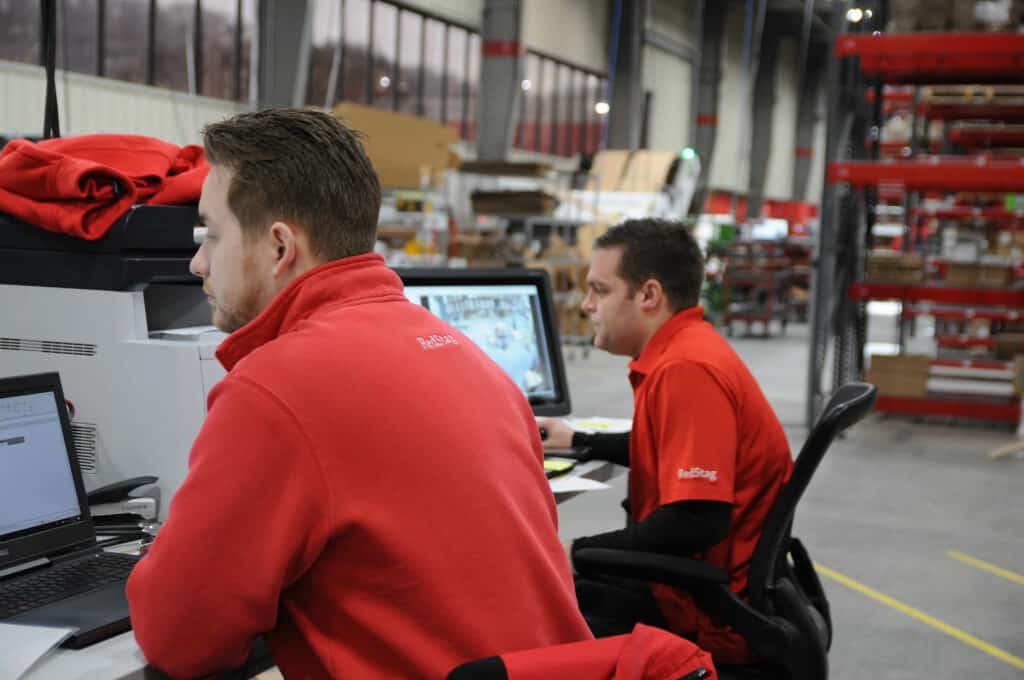
Red Stag Fulfillment is your omnichannel expert
Red Stag Fulfillment has helped many clients develop and implement an omnichannel fulfillment strategy.
We devote care and attention to every order we ship, and we’re always looking for ways to create better unboxing experiences for our clients’ customers. We consider it our job to make your brand look good and help you exceed customer expectations.
Let’s talk about how we can help you improve your omnichannel fulfillment processes.
More fulfillment options:
- Affordable Fulfillment: Understanding Total Fulfillment Value
- How Smart Fulfillment Partners Support ECommerce Growth
- Do You Really Need to Own Your Warehouse?









